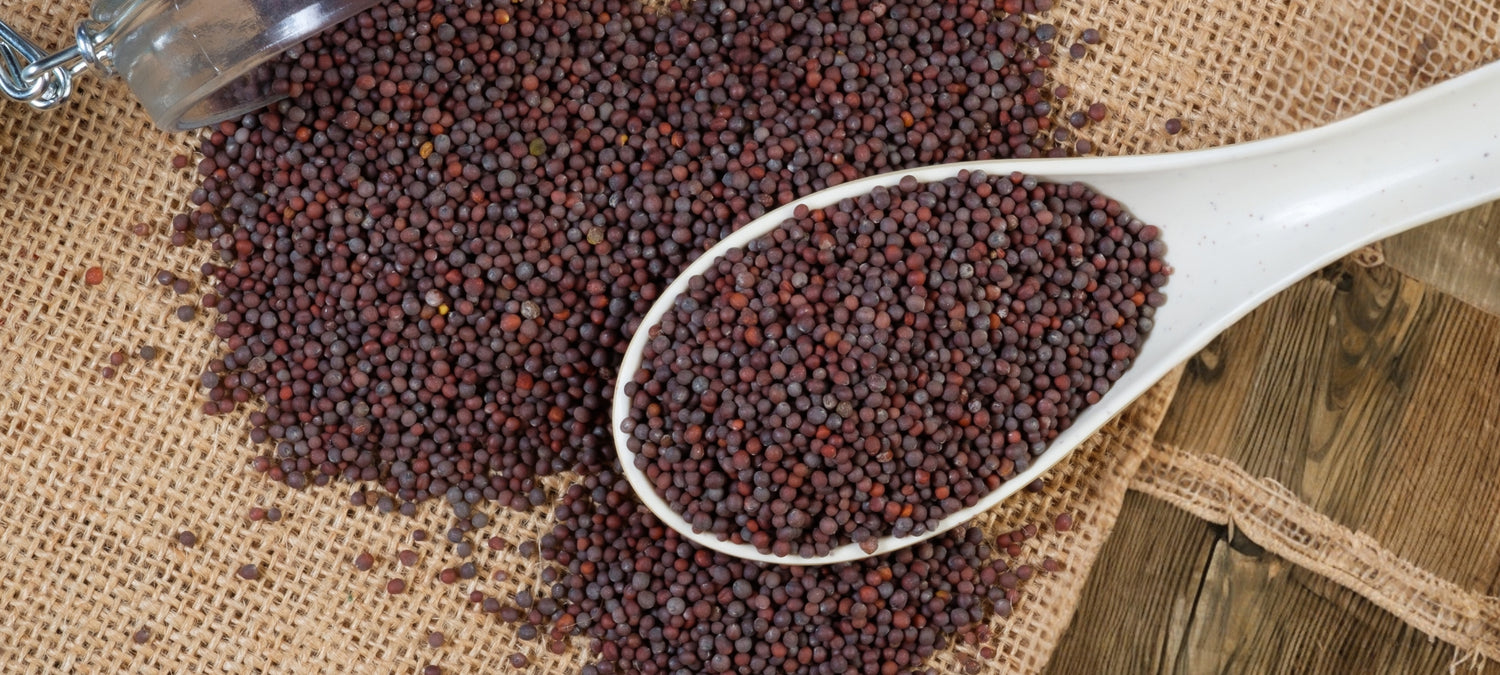Comparing Regenerative Farming Techniques
In the realm of modern agriculture, the concept of regenerative farming has emerged as a beacon of hope for a sustainable future. At its core, regenerative farming is more than just a set of techniques; it's a philosophy that seeks to rejuvenate the earth's ecosystems through agriculture. This approach goes beyond sustainability—it aims to actively restore soil health, increase biodiversity, and balance natural ecosystems. By focusing on methods that regenerate rather than deplete, this form of agriculture holds the promise of healing the land while still providing abundant harvests.
The importance of sustainable agriculture in today's world cannot be overstated. With a growing global population and the increasing impacts of climate change, the need for farming practices that support long-term ecological balance has become critical. Sustainable agriculture is not just about producing enough food; it's about producing food in a way that supports the health of our planet and its inhabitants. This means using methods that conserve water, reduce reliance on chemical inputs, and promote biodiversity. It's a holistic approach that considers the well-being of future generations as well as our own.
Amidst the various techniques that embody the spirit of regenerative agriculture, Korean Natural Farming (KNF) stands out as a pioneering method. KNF is not just a farming practice; it's a harmonious approach that aligns closely with nature's processes. Developed in Korea in the early 1960s, KNF emphasizes the use of indigenous microorganisms (IMOs) to enhance soil health and plant growth naturally. This method integrates local resources, traditional knowledge, and ecological principles to create a farming system that is both productive and sustainable. By fostering a deep connection between the soil, plants, animals, and humans, KNF offers a powerful tool for transforming agriculture into a force for environmental regeneration.
What is Korean Natural Farming (KNF)?
Korean Natural Farming (KNF) is an innovative approach to agriculture that combines traditional farming wisdom with modern ecological practices. At its heart, KNF is based on the principle of cultivating and applying beneficial indigenous microorganisms (IMOs) to enhance soil health and plant vitality. This method focuses on creating a self-sustaining farming environment where natural inputs are used to nourish and protect crops, thereby minimizing external chemical inputs and disturbances.
Principles of KNF
- Use of Indigenous Microorganisms (IMOs): KNF harnesses the power of beneficial microbes native to the farm's environment. These IMOs are collected, cultured, and applied to improve soil fertility and plant health.
- Natural Nutrient Cycles: It emphasizes the recycling of farm waste into valuable inputs like fermented plant and animal extracts.
- Soil Health and Biodiversity: KNF practices nurture a diverse and vibrant soil ecosystem, which is key to healthy crops and sustainable agriculture.
- Minimal External Inputs: The approach aims to reduce dependency on commercial fertilizers and pesticides, favoring natural, farm-made solutions.
History and Philosophy
Korean Natural Farming was developed in the early 1960s by Han Kyu Cho in South Korea. Cho was inspired by traditional Korean farming practices and the philosophy of working harmoniously with nature. He observed that plants grown in untouched, natural environments thrived without human intervention and sought to mimic these conditions in agriculture. Cho's philosophy centers around the belief that nature, when respected and understood, provides the best blueprint for growing food sustainably. This method gained popularity due to its low-cost inputs, effectiveness, and environmental benefits, and it has since spread globally as an alternative to conventional agriculture.
Ancient Wisdom KNF Line of Products
Embracing the ethos of KNF, Sacred Plant Co. offers the Ancient Wisdom KNF line of products. This collection embodies the principles of Korean Natural Farming, providing gardeners and farmers with natural, powerful tools to enhance their agricultural practices. From fermented plant extracts to beneficial microbial solutions, each product is designed to boost soil health and plant resilience, reflecting the core values of KNF. By integrating these products into their practices, users can experience firsthand the transformative power of Korean Natural Farming.
Comparison of KNF with Other Regenerative Techniques
Regenerative agriculture encompasses a range of farming methods that aim to rehabilitate and enhance the entire ecosystem of the farm. Korean Natural Farming (KNF) is a part of this broad spectrum, alongside other notable methods like permaculture and biodynamic farming. Each of these techniques offers unique principles and practices, with shared goals of environmental sustainability and improved soil health.
Overview of Other Regenerative Farming Methods
- Permaculture: This approach centers on designing agricultural landscapes that mimic natural ecosystems. It emphasizes diversity, perennial plants, and the creation of symbiotic relationships between different elements of the farm.
- Biodynamic Farming: Developed by Rudolf Steiner, this method views the farm as a closed, self-sustaining ecosystem. It uses specially prepared composts and herbal preparations to enhance soil health and relies on an astronomical sowing and planting calendar.
Comparison with KNF
-
Principles and Practices:
- KNF focuses on utilizing indigenous microorganisms and natural farm inputs.
- Permaculture stresses the design of sustainable and self-sufficient agricultural systems.
- Biodynamic Farming integrates spiritual and mystical elements into farming practices.
-
Environmental Impact:
- All three methods aim to reduce chemical use and promote ecological balance, but KNF uniquely leverages local microbial life to achieve these goals.
-
Efficiency and Productivity:
- KNF is renowned for its cost-effectiveness, using locally sourced materials.
- Permaculture and Biodynamic Farming may require more initial investment in terms of design and preparation but offer long-term sustainability.
-
Soil Health and Biodiversity:
- KNF and Biodynamic Farming both focus intensely on soil health, but KNF’s use of IMOs is distinct.
- Permaculture excels in biodiversity, creating ecosystems that support a wide range of life.
The Uniqueness of KNF in the Regenerative Agriculture Landscape
KNF stands out in the regenerative farming world for its simplicity, effectiveness, and deep respect for natural processes. The core of KNF lies in its emphasis on local resources and IMOs, making it highly adaptable to different environments and accessible to farmers globally. This method's focus on microbial life sets it apart, offering a unique perspective on how to nurture and sustain agricultural ecosystems. KNF is not just a farming method; it's a philosophy that encourages a profound connection with the land, fostering an understanding that healthy soil leads to healthy plants, animals, and humans. By bringing the wisdom of ancient farming practices into the modern era, KNF plays a pivotal role in the future of sustainable agriculture.
Scientific Backing of KNF Benefits
Sacred Plant Co's research and commitment to Korean Natural Farming (KNF) principles have led to impressive advancements in soil health and crop yield, as evidenced by their meticulous scientific analysis. The data, tested and validated by the Colorado State University Soil, Water, and Plant Laboratory, reveals significant improvements in soil composition and nutrient availability, directly impacting the quality and health of the herbs grown.
Impact on Soil Health
- Organic Matter Levels: There was a dramatic increase in organic matter, from 0.7 to 1.9 PPM, over the course of a year. This enhancement in organic matter is crucial for soil structure, water retention, and nutrient availability, making it a vital indicator of soil health.
- Nitrate Concentration: The concentration of nitrate in the soil leaped from 0.09 to 14 PPM. Nitrates are essential for plant growth, as they are a primary source of nitrogen, a key nutrient for plants.
- Phosphorus Levels: Phosphorus levels rose from 2.2 to 5 PPM. Phosphorus is critical for the development of plant roots and for enhancing flowering and fruiting, thus contributing to overall plant vitality and productivity.
- Sulfate Concentrations: Sulfate levels improved from 5 to 9.4 PPM. Sulfates play a significant role in protein synthesis and are essential for crop yield and quality.
Impact on Crop Yield and Quality
- The increase in essential nutrients like nitrates, phosphorus, and sulfates directly correlates with enhanced crop yield and quality. Healthier soil leads to stronger, more resilient plants, capable of producing higher yields of herbs.
- The balanced trace elements such as zinc, iron, manganese, and copper contribute to the overall health of the plants, improving their resistance to diseases and pests, and enhancing their nutritional profile.
Our Testimonial
The data itself serves as a strong testament to the efficacy of KNF practices implemented by Sacred Plant Co. The remarkable improvements in soil quality within a year highlight the potential of KNF to transform conventional farming practices into more sustainable, productive, and environmentally friendly operations.
The scientific data from our research presents a compelling case for the benefits of Korean Natural Farming. By focusing on improving soil health through natural and sustainable practices, KNF has shown to significantly enhance the nutrient content and structure of the soil, leading to healthier crops and increased yields. This approach not only benefits the plants but also contributes to a healthier ecosystem, aligning with the principles of regenerative agriculture and sustainable farming.
In-Depth Look at Sacred Plant Co’s KNF Approach and Products
Sacred Plant Co. not only offers a unique range of Korean Natural Farming (KNF) products but also provides valuable insights through their informative blog posts. These resources together give a comprehensive understanding of the KNF approach and its practical applications. Let’s delve into how their approach aligns with the principles of KNF and explore the connections between their products and educational content.
1. Emphasizing Soil Health: Soil to Wellness
- KNF Approach: Focusing on nurturing soil health as the foundation for plant wellness.
- Blog Insights: The "From Soil to Wellness" article dives into how healthy soil is crucial for robust plant growth and overall ecosystem balance.
- Product Connection: Explore the KNF product collection that includes solutions aimed at enhancing soil vitality and structure.
2. Unlocking Plant Potential with OHN: Unlocking OHN Potential
- KNF Approach: Utilizing Oriented Herbal Nutrient (OHN) to boost plant growth and immunity.
- Blog Insights: "Unlocking the Potential of OHN in Gardening" discusses the benefits of OHN in enhancing plant vigor and resilience.
- Product Connection: The KNF product line includes formulations that harness the power of OHN for diverse gardening needs.
3. Enhancing Flowering and Fruiting: Nature’s Symphony
- KNF Approach: Tailoring nutrition for the flowering and fruiting stages of plants.
- Blog Insights: Learn about the importance of targeted nutrition in "Unleashing Nature’s Symphony."
- Product Connection: Specific products in the KNF collection cater to maximizing the potential of flowering and fruiting phases.
4. Building Plant Defenses: Herbal Defense OHN
- KNF Approach: Strengthening plants' natural defenses against pests and diseases.
- Blog Insights: The article "Charge Forward with Sacred Plant Co’s Herbal Defense OHN" elaborates on natural pest and disease resistance.
- Product Connection: Discover products in the KNF range that focus on bolstering plant immunity.
5. Accelerating Growth: The Wild Sprint Accelerator
- KNF Approach: Promoting robust early stage growth of plants.
- Blog Insights: "The Wild Sprint: Your Expedition with Sacred Plant Co’s Accelerator" discusses strategies for enhancing early plant development.
- Product Connection: The Ancient Wisdom KNF collection offers solutions for accelerating plant growth effectively.
6. Mineral Enrichment: Mineral Extract WSC
- KNF Approach: Providing essential minerals for plant nutrition and health.
- Blog Insights: Gain insights on mineral importance in "Digging Deep: Your Odyssey with Sacred Plant Co’s Mineral Extract WSC."
- Product Connection: Products in the KNF lineup are designed to enrich plants with vital minerals.
7. Enhancing Composting with LABS: Revolutionizing Composting with LABS
- KNF Approach: Using Lactic Acid Bacteria (LAB) to improve composting processes.
- Blog Insights: The benefits of LAB in composting are detailed in "Revolutionizing Composting with LABS."
- Product Connection: The Ancient Wisdom product line includes options that utilize LAB for effective composting.
8. The Comprehensive Power of KNF: Power of KNF in Regenerative Farming
- KNF Approach: Integrating KNF into diverse farming practices for holistic benefits.
- Blog Insights: Understand the broader impacts of KNF in regenerative farming in "Embracing the Future of Agriculture: The Power of KNF in Regenerative Farming."
- Product Connection: Explore the entire KNF product range for comprehensive solutions in regenerative farming.
Throughout this exploration of Korean Natural Farming (KNF) and its practical applications, we've uncovered the profound impact this method can have on both the environment and agricultural productivity. We delved into the foundational principles of KNF, highlighting its focus on indigenous microorganisms and natural farm inputs to foster a self-sustaining agricultural environment. The comparison with other regenerative techniques like permaculture and biodynamic farming illustrated KNF's unique approach to sustainability, efficiency, and environmental stewardship.
The scientific data from Sacred Plant Co's research provided compelling evidence of the benefits of KNF, showcasing significant improvements in soil health and crop yield. By integrating the wisdom of ancient practices with modern ecological understanding, KNF stands as a pivotal player in the movement towards sustainable and regenerative agriculture.
Our journey through the Ancient Wisdom KNF product line and related blog posts offered a practical perspective on how these principles can be applied in everyday farming and gardening practices. Each product and article reflects a commitment to enhancing soil vitality, plant health, and ecological balance.
We encourage our readers to explore the KNF product line and dive into the informative blog posts for a deeper understanding and application of these principles. Embracing KNF could be a transformative step in your agricultural journey, aligning your practices with the rhythms of nature for a healthier, more sustainable future.
We invite you to explore the Ancient Wisdom KNF product line and discover how these natural solutions can revolutionize your approach to farming and gardening. Each product is a testament to the power and effectiveness of Korean Natural Farming practices.
We also encourage you to share your experiences with KNF or pose any questions you might have in the comment section below. Your insights and inquiries not only enrich our community but also contribute to the collective journey towards a more sustainable and regenerative future in agriculture. Join us in this exciting endeavor and become a part of the movement towards nurturing our planet through mindful farming practices.



